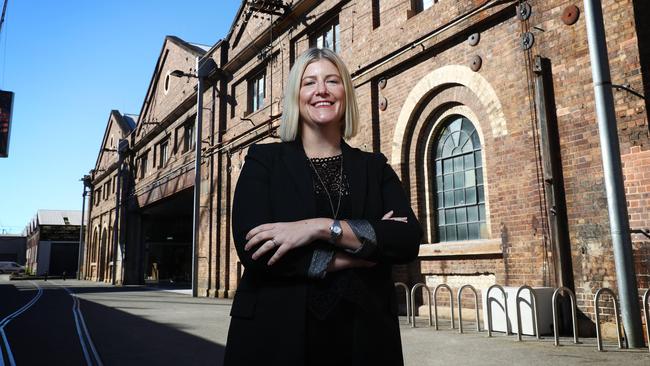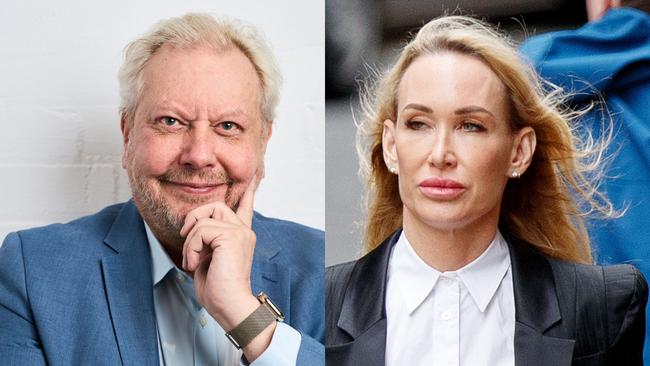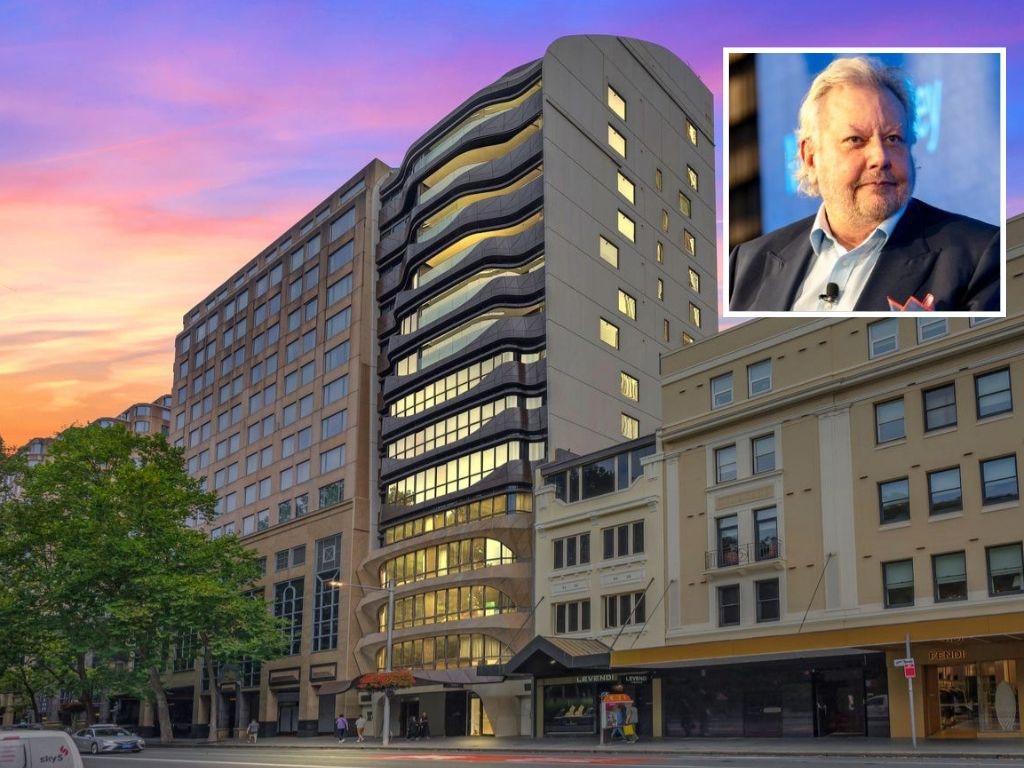WiseTech scandal highlights broader issues in nation’s tech ecosystem
The Tech Council has come under fire for not advocating a safe place for women over its response to allegations WiseTech founder Richard White traded advice for sex.

Australia’s peak tech lobby has come under fire for not advocating a safe place for women in its response to allegations that WiseTech’s billionaire founder Richard White traded business advice for sex.
Sally-Ann Williams – a former Google executive who now heads one of the nation’s top tech incubators, Cicada Innovations – said many female entrepreneurs were fearful of taking private meetings with powerful men out of fear of being preyed upon.
Mr White resigned from the Tech Council of Australia last week after he pipped AirTrunk founder Robin Khuda for a seat on its board in June.
He has also resigned from WiseTech’s board and executive ranks but has kept his $1m a year salary with the title of “founder and founding CEO” in a new consulting role at the $39.63bn ASX-listed company.
Despite the scandal, it appeared to be as business as usual for WiseTech on Friday, the Australian Shareholders Association wrote in an email. “If the share price movement is anything to go on, Wisetech is experiencing some calm after the company announcement on 24 October of the MD/CEO stepping down, and returning as a consultant focused on product and business development after a short break,” it read.
The stock, which fell 28 per cent from October 1 to 24, has since recovered almost 20 per cent to $118.50.
Ms Williams, who does not know Mr White personally, said the WiseTech crisis and a separate scandal at Grok Academy – which has faced allegations of harassment – were hardly surprising. She said while the names changed, the circumstances remained the same, without much-needed systemic change.

She said the Tech Council’s handling of Mr White was a “missed opportunity” to show strong leadership. She said temporarily standing someone down amid formal investigations was the easiest thing a board could do.
“I think it’s a missed opportunity to send a signal about where the sector can recognise its flaws and recognise its challenges,” she said. “We do have an inclusion challenge. I think it was an opportunity to show leadership about where the bar is.”
Ms Williams said the scandal sent a stark message about the dire state of funding for Australian women in the tech industry and was a reminder that they had no choice but to avoid risky meetings with investors outside safe professional settings.
“I don’t know many women in the tech sector that are seeking to raise capital that would take private meetings with investors or leaders,” she told The Weekend Australian. “They are really seeking to put themselves in positions of safety because there’s a power imbalance in the situation.”
Mr White has faced a series of sensational allegations about his private life amid a Federal Court case with his former lover Linda Rogan, including one allegation that he had offered investment advice in exchange for sex.
Sydney-based psychologist Jenna Riches also claimed that after several months of regular interstate contact with Mr White, which began over LinkedIn, the professional mentoring turned into a romantic relationship. Mr White and Ms Rogan abandoned their legal fight on October 22, with a settlement understood to be in the millions and a nondisclosure agreement.

Ms Williams has called for a national ban on the signing of nondisclosure agreements, which had been used as a tool to silence victims. She cited Victoria’s proposed legislation, out for consultation, which seeks to prevent sexual assault survivors from being forced or persuaded to sign NDAs amid settlements.
“You can go through the system and there can be money awarded and compensation awarded to that individual but no NDA because their voices shouldn’t be silenced,” she said.
Victorian Premier Jacinta Allan echoed those comments, saying NDAs had shifted from becoming a tool to “protect trade secrets” to being “used to silence victims of sexual harassment”.
Airwallex co-founder Lucy Liu said Australia’s tech industry was bigger than Richard White.
Asked if she thought the Tech Council’s handling of Mr White’s case reflected a “boys club” mentality and would deter women from entering the industry, Ms Liu said believed the industry was resilient enough to handle the storm.
Ms Liu said the scandal engulfing WiseTech and Mr White would not deter more women from entering the sector.
“Diversity happens naturally. It’s not something that’s forced. It’s really depending on how women are seeing themselves. I don’t personally like to victimise myself,” she said. “We’re definitely seeing more women come through. The mentality should be we see people as people. Gender is only one part of diversity. You also have other different labels that people tend to use.”
Meanwhile her fellow co-founder, Jack Zhang, asked on LinkedIn how anyone knew whether the allegations levelled against Mr White were true – but later deleted the post. “I was not following the story super close, but how do you know the story is 100 per cent true? Just based on the media? How does the Tech Council know what is true or not?” he wrote.




